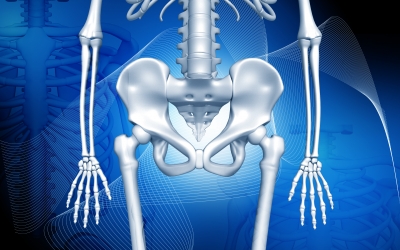Hip Impingement Syndrome
Written by: Paul Kochoa, PT, DPT, OCS, CKTP, CGFI
Let me tell you about hip impingement syndrome, also known as FAI: Femoral Acetabular Syndrome. It’s a disorder of the hip that results in pain and a decrease in range of motion of the hip joint. It can be linked to childhood hip disorders or fractures of the hip and pelvis, but the true cause is unknown. Some studies link high impact sports with a higher risk of developing FAI.
Whatever the cause, patients generally are female and complain of pain in the hip or groin area that increases with activity. The pain can start at the front of the hip and travel to the back. And typically there is no night pain or pain at rest. Pain can increase when the patient moves their hip a certain directions: primarily flexion combined with internal rotation and adduction. This movement is characterized by bending at the hip, adding rotation so the knee in pointing inward and the foot is pointing outward, and then bringing the knee across midline.
The hip is a ball and socket joint that moves in a three-dimensional pattern. It can move forward, sideways, and rotate around. There are several types of FAI, but basically they all involve one point of the joint impinging on another part of the joint, creating pain. Think about it like this: either the ball is too big or the socket is too tight, or one of the joint edges becomes sharp and pinches on the other bone during movement. Diagnosis can be done via an X-ray to show the bony changes of the hip joint or an MRI that can show the soft tissue injuries.
Left untreated, FAI can develop into a tear of the labrum, it this tear occurs, the hip can go under further degeneration, as the hip joint’s mechanics and the seal around the joint are compromised. Unfortunately, as a physiotherapist, I cannot change the bony structure of a joint. Surgery may be the only option. However, physiotherapists can address soft tissue issues, joint mobility, and stability around the hip. If the hip’s surrounding soft tissue structures are tight and the stabilizing muscles are weak, the patient winds up with a weak, tight hip and further risks developing FAI. Physical therapy is a viable treatment option. A physiotherapist can help a patient with FAI gain the stability and mobility they may need, but success of the treatment can majorly hinge on the patient’s willingness to modify their activity to avoid high impact, rotational sports. Check with your physiotherapist if you think you have FAI, don’t let it go untreated, catching it sooner will lead to better results.
If you would like more information, please call Professional Physical Therapy and Training at 973-270-7417. Our offices are located within the YMCA locations in Madison and Summit, NJ. You do not need to be a member of the YMCA to visit with us.
Image courtesy of renjith krishnan / FreeDigitalPhotos.net